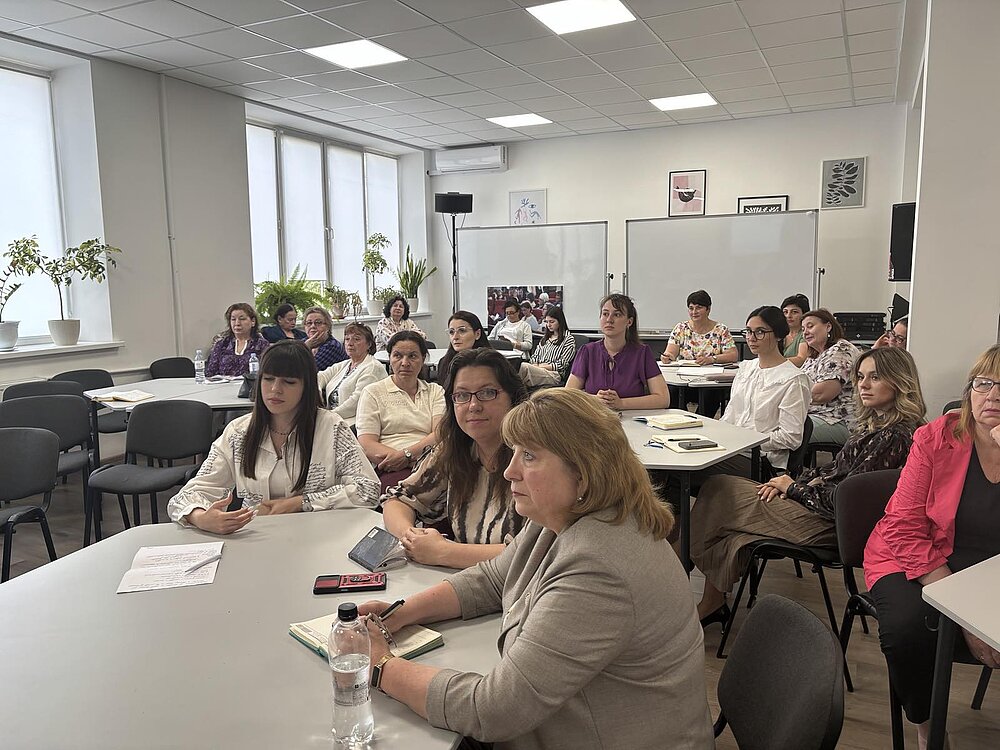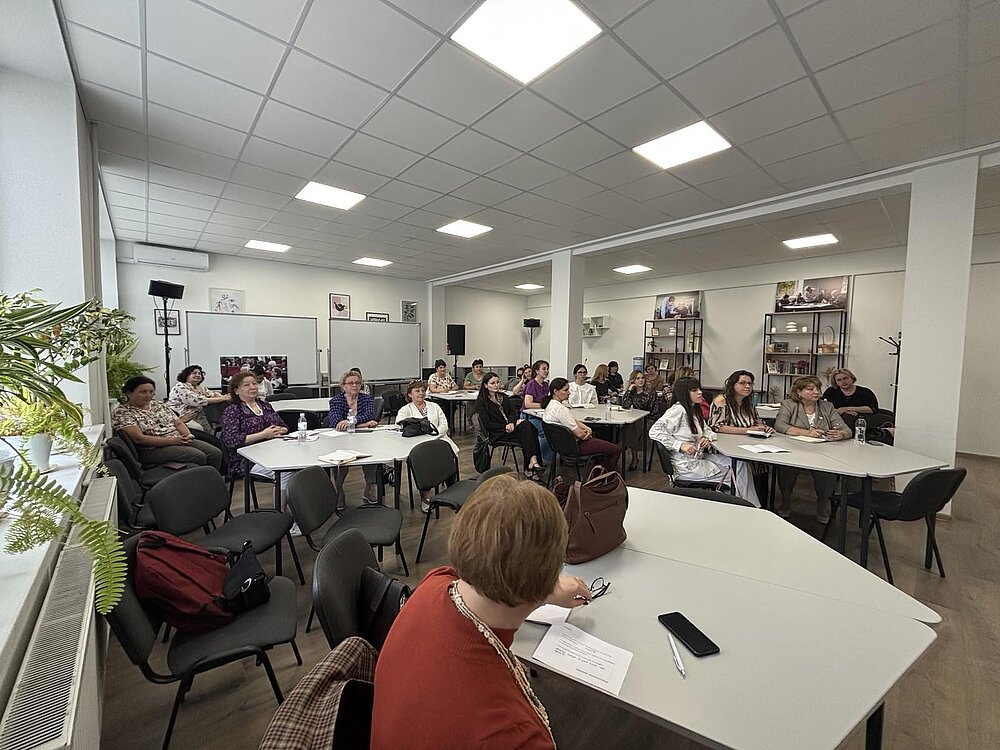While students are preparing for their exams and wrapping up the academic year, educators - including teachers, trainers, and professors - should also take the time to reflect on their own professional development through adult learning and education.
To support educators’ professional growth, including master’s students and PhD candidates, DVV International is sharing German expertise in this area field.
On 13 June 2025, DVV International Moldova organised a public lecture titled “Professionalization of Educators in Adult Learning and Education in Germany – An Example from Bavaria” at the State University of Moldova, the country’s largest university. The keynote was delivered by Dr. Martin Ecker, Managing Director of VHS Munich, the largest Adult Education Centre in Germany.
The event brought together 35 participants, including university teaching staff, trainers, students and other interested individuals.
The lecture aimed to raise awareness of the importance of professionalisation in adult learning and education (ALE) and to share best practices from the German system.
Adela Scutaru-Gutu, Country Director of DVV International Moldova, opened the session with remarks emphasising the importance of continuous professional growth in ALE, particularly given the legislative limitations in Moldova.
Dr. Ecker began his presentation with an overview of the legal framework in Bavaria, then outlined the structure of VHS teaching staff, which includes both employed and self-employed educators. He then highlighted various upskilling initiatives in Germany, such as modular training events, blended learning formats, train-the-trainer models, and structured funding programs like Kursif, BVV-fit, and Personalförderprogramm. External quality assurance mechanisms, including EFQM, are also applied and are mandatory for public funding eligibility.
In 2024 alone, over 7,000 ALE trainers participated in 504 workshops aimed at enhancing both didactical and organisational competencies. These programmes focused on management and strategic planning, as well as providing a scientific foundation for adult education practitioners.
Dr. Ecker emphasised that the success of these programmes lies in their structured and well-funded approach. However, challenges remain, such as the absence of a unified legal framework for adult education in Germany, and the sector’s fragmentation due to its market-driven structure. However, the decentralised and flexible nature of the system allows for innovation and adaptability. Overall, these initiatives have significantly improved the quality of adult education across Bavaria.
The topic resonated strongly with participants, generating many questions during the discussion. Key areas of interest included participant motivation and demographic profiles (gender, background, ethnicity), course variety, the train-the-trainer model, accreditation processes, and pathways to becoming a certified trainer in Germany.
This event was part of the project “Professionalisation of Adult Education Centres in Europe – Phase III (2025–2027)”, funded by the German Federal Ministry for Economic Cooperation and Development (BMZ).





